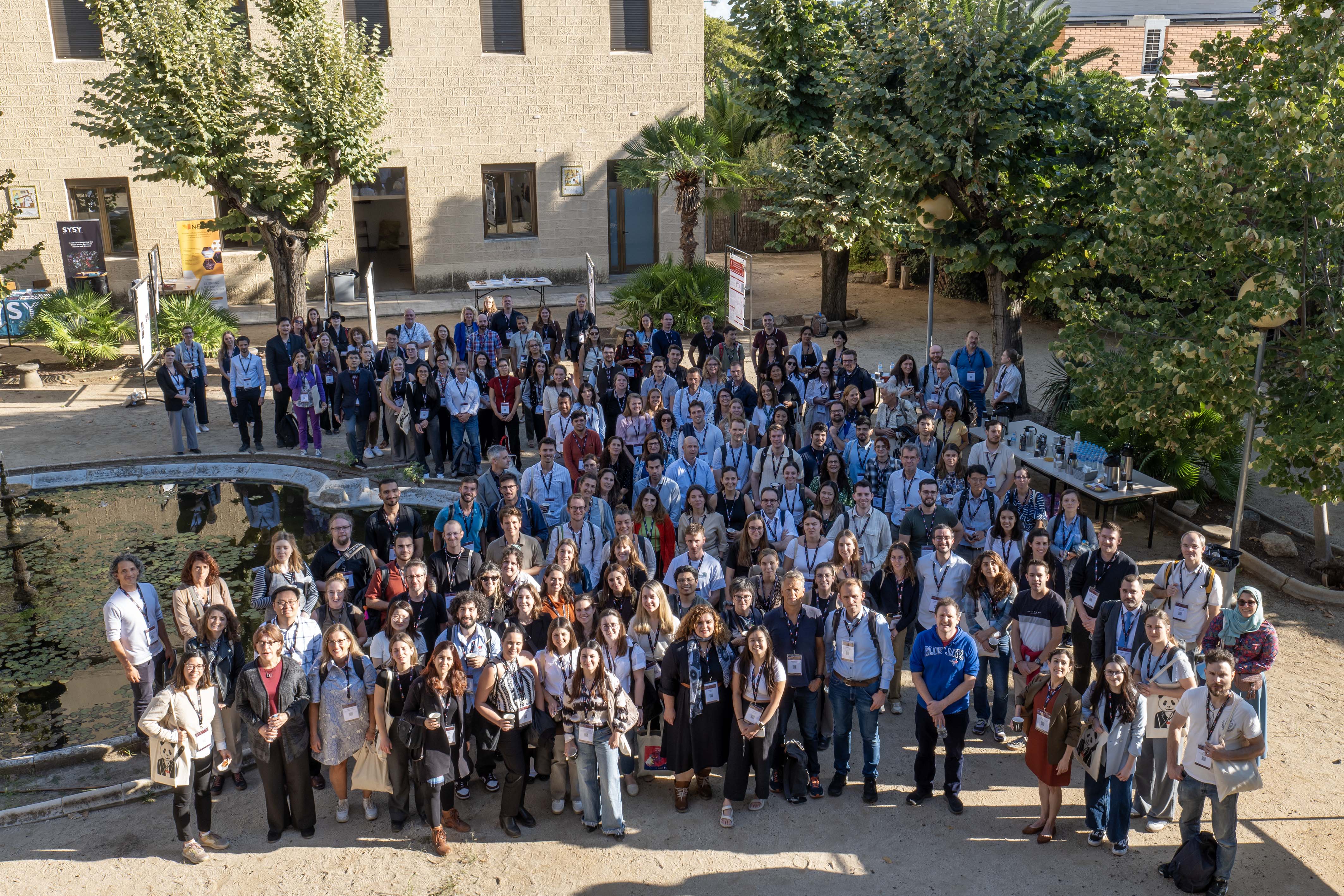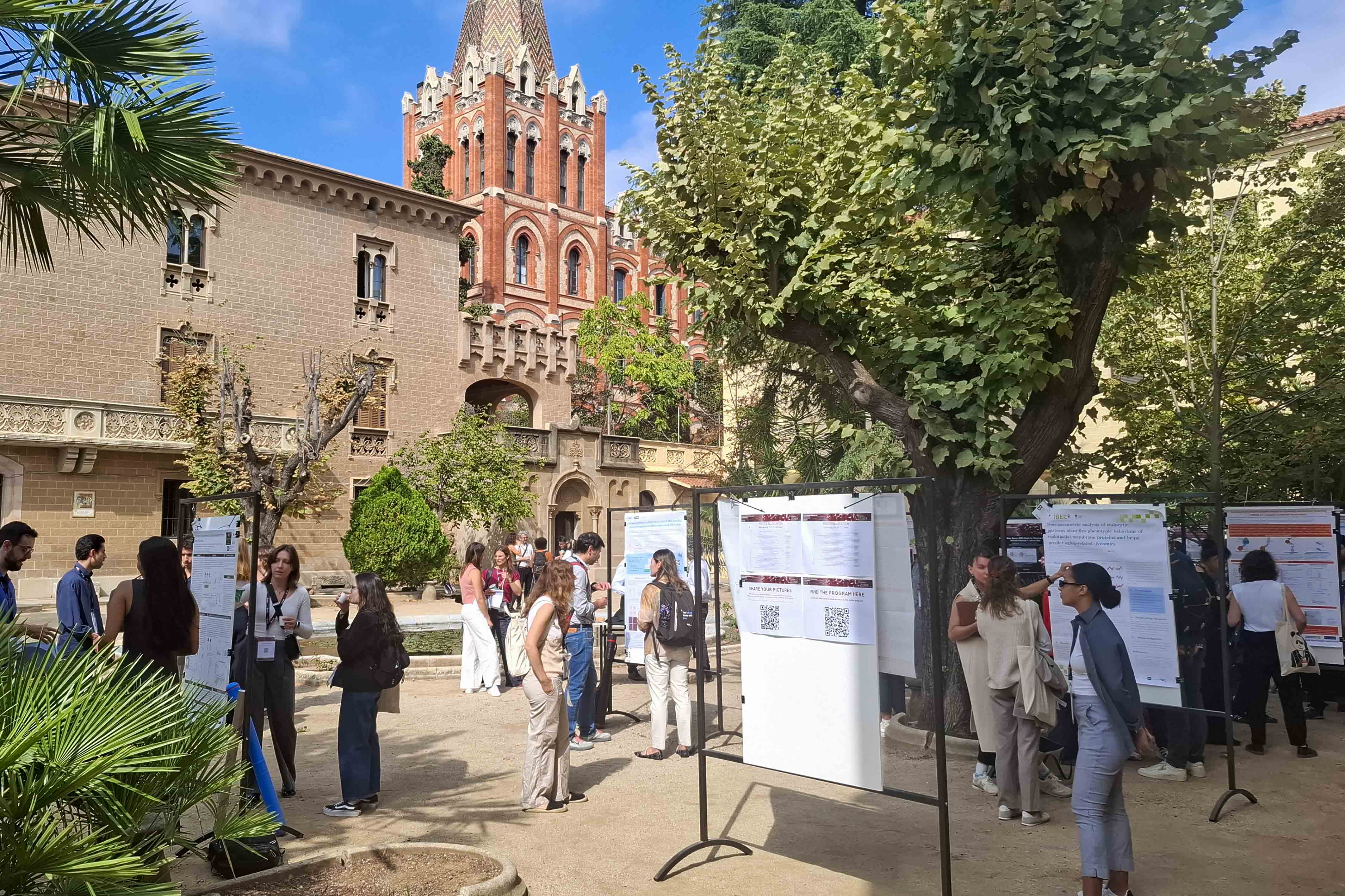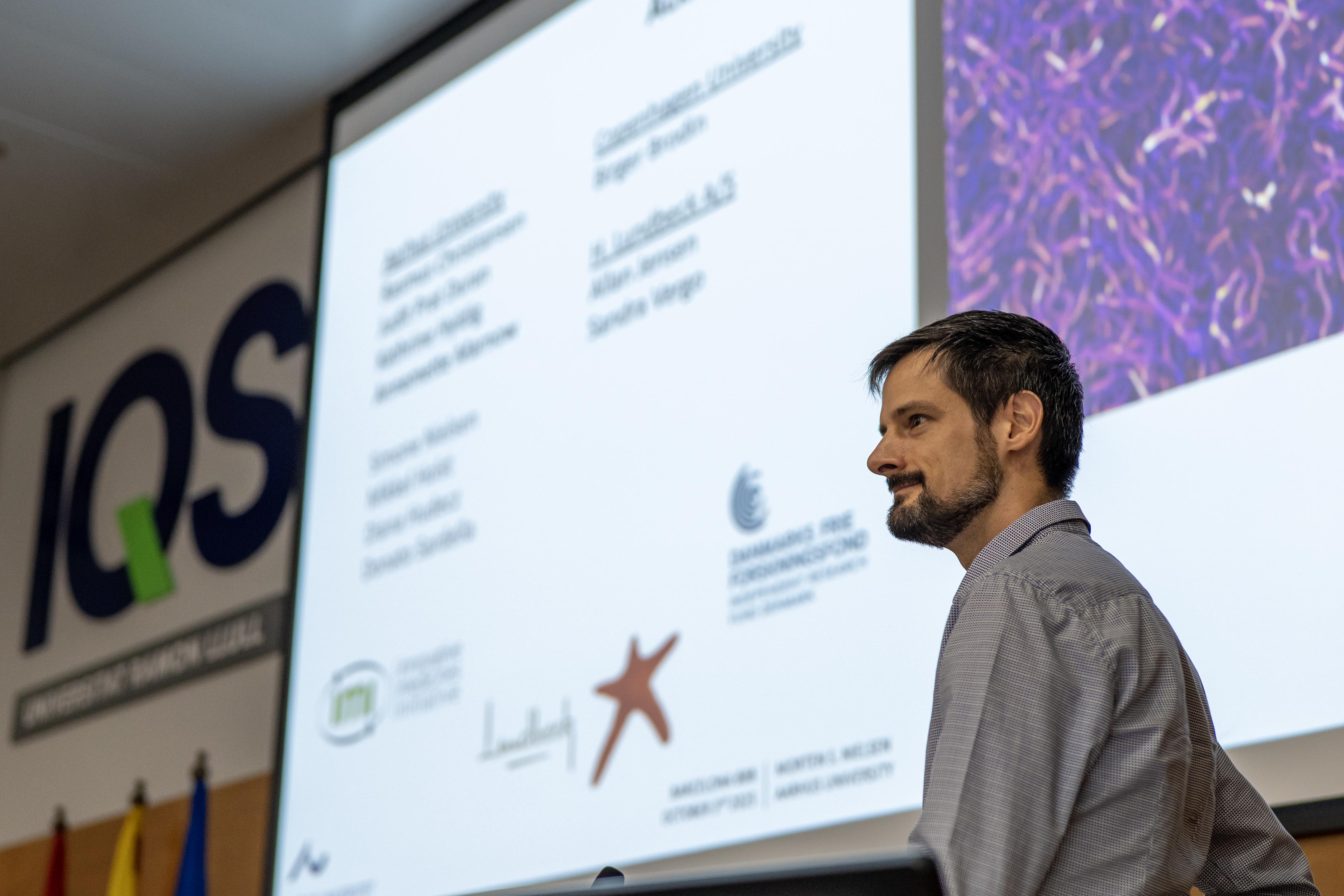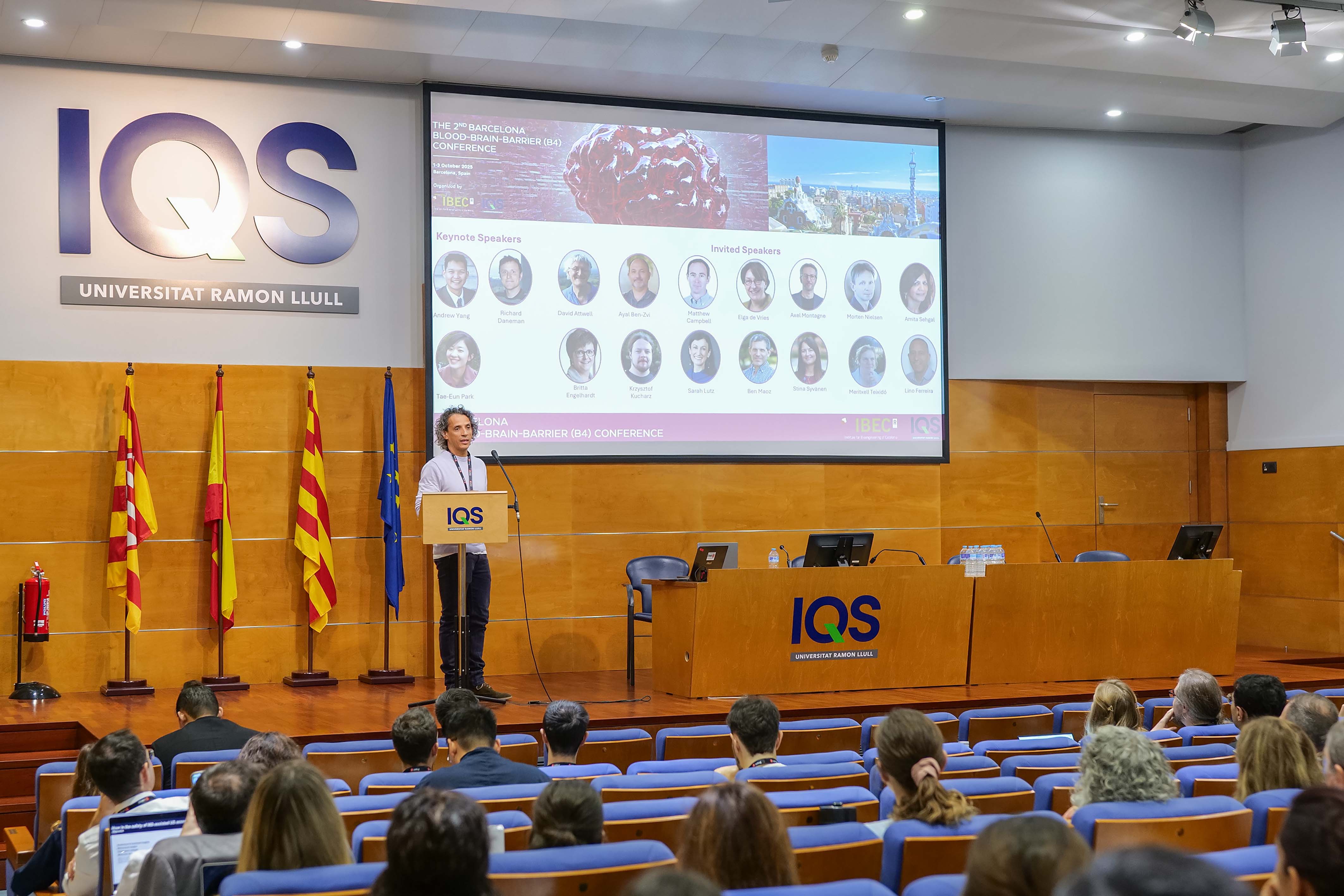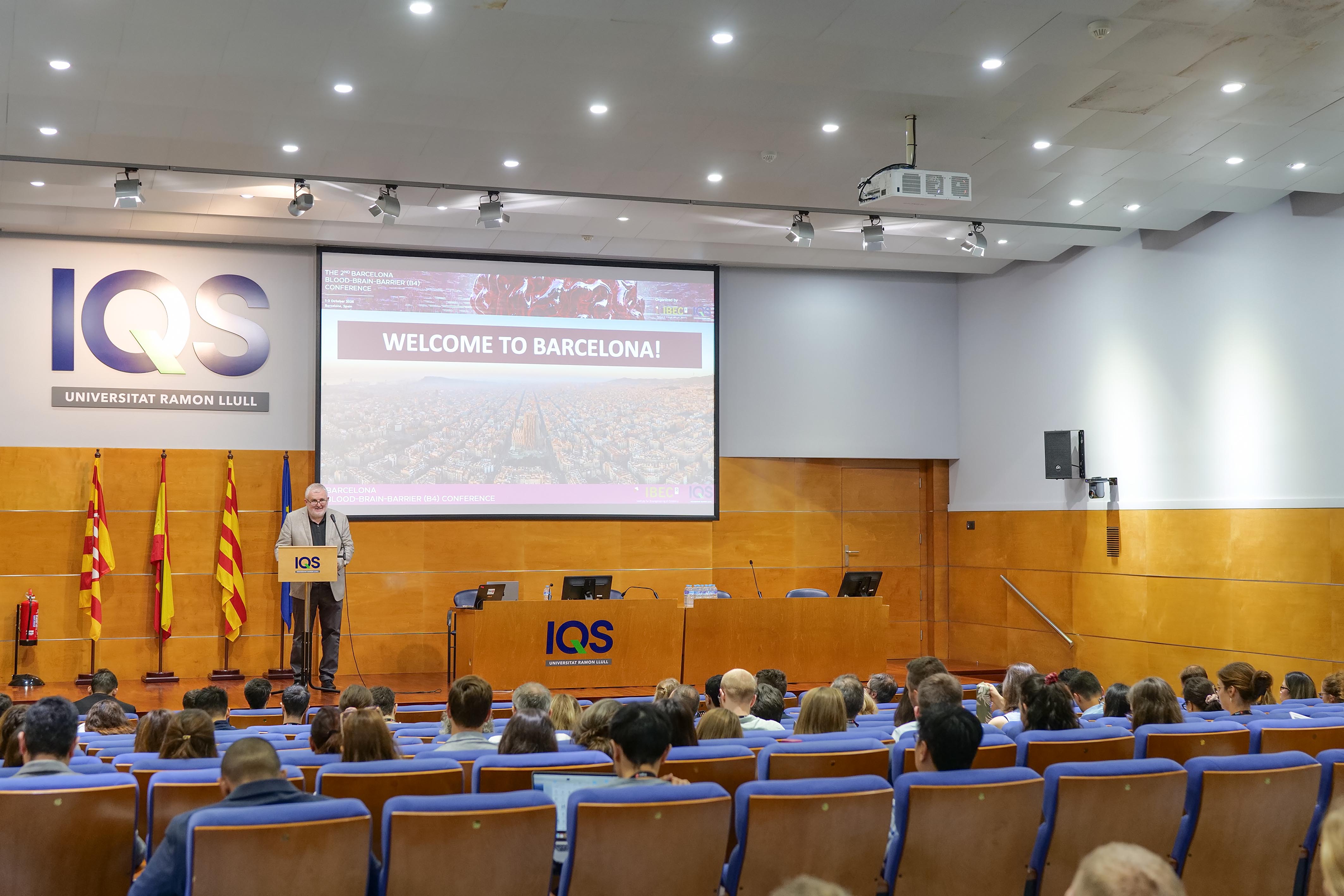From 1 to 3 October, the second edition of the Blood-Brain-Barrier Barcelona (B4) conference was held at IQS, jointly organized by IQS and the Institute of Bioengineering of Catalonia (IBEC). The event brought together leading scientists from around the world to share and discuss the latest advances in blood-brain barrier (BBB) research, making it one of the largest and most high-level conferences ever organized. With 18 leading speakers, 70 selected talks, 60 posters, and more than 200 attendees from more than 20 countries, the second edition of the B4 was a great success and showed that this community transcends all borders.
The organizers of this second edition of the B4 were Dr Benjamí Oller Salvia, coordinator of the ChemSynBio group at IQS, and Dr Giuseppe Battaglia and Dr Daniel González Carter, researchers at IBEC-BIST.
The most advanced science on the blood-brain barrier
The BBB remains the main challenge for drug delivery to the brain, but at the same time it is a vital interface for the exchange of substances and a central element in many pathologies.
For three days, the conference featured keynote lectures by internationally renowned experts, companies in the sector, and emerging researchers such as Dr Andrew Yang, from the Gladstone Institutes in the United States, who gave a lecture on new strategies to discover ways to cross the BBB and bring immunotherapies to the brain; Dr Richard Daenman, from the University of California, who spoke about new mechanisms for regulating the BBB; and Dr Tae-Eun Park, from the Ulsan National Institute in South Korea, who showed new cellular models of the BBB to minimize animal testing.
The scientific agenda combined keynote lectures, three parallel sessions with selected talks, and poster sessions, thus fostering a dynamic and interdisciplinary exchange in fields such as neuroscience, vascular biology, protein engineering, nanomedicine, and bioengineering. Attendees participated in lively discussions on topics including the regulation of BHYE, its role in brain cancer, strokes, and neurodegeneration, as well as the development of new strategies to cross the BBB and allow drugs to reach their targets in the brain more efficiently.
IQS participants
In this second edition of the B4 congress, IQS was represented by researchers working in areas related to the BBB at the university.
Dr Eduardo Ruiz, Adrià Puigdemont, and Burcu Yaldiz, from the ChemSynBio group, presented the initial results of the OBGate project, funded by the European Research Council (ERC); Dr Shambhavi Pandey, from the same group, explained her research related to nanoparticles for the treatment of glioma developed at the Seoul National University along with the results obtained at IQS within the OBGate and LIPCAS projects; Dr Cristina Diaz and Dr Nathaanel Rakotoarinoro showed the ability to transport nanoparticles and antibodies from the new family of transporters based on bicyclic peptides created in the ChemSynBio group; and Dr Sara Fuentesalz, researcher at the Vascular Engineering and Applied Biomedicine Group (GEVAB), presented her research on 3D models of BHE to study T-cell migration within the European Immutol project.
In the words of Dr Benjamí Oller, “with the resounding success of this edition, B4 has positioned itself as a leading conference in the field of the blood-brain barrier on a global scale. Looking towards the future, we are aiming to consolidate B4 as a solid and benchmark European platform in this field, welcoming speakers and participants from all over the world.”










